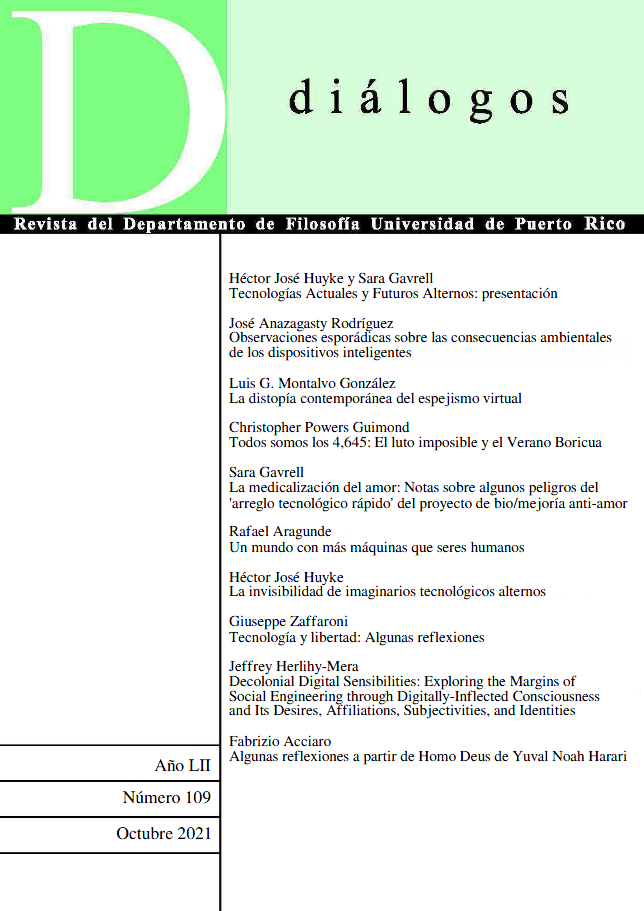Abstract
Copying science fiction, it has been proposed that anti-love biotechnology should be used to solve ethical problems: being in love should be conceived as a kind of addiction that, when harmful, should be "cured". In this paper, I present and evaluate some aspects of the proposal to medicalize love. I show sexist assumptions in the conceptualization of problems and their solutions, and in medical practice; and argue that anti-love biotechnology will not solve the problems it aims to address. Using current examples of medicalized meaningful human experiences, I suggest the normalization of love-as-disease limits our imaginings of alternate futures: eventually it will be difficult to conceive of "being in love" as an experience free from medical control. The proposal to include "love-as-addiction" in the DSM-V also has the potential to undermine autonomy by laying the foundation to label as incompetent anyone in love and justify imposing treatment invoking medical paternalism.

This work is licensed under a Creative Commons Attribution-NonCommercial 4.0 International License.

